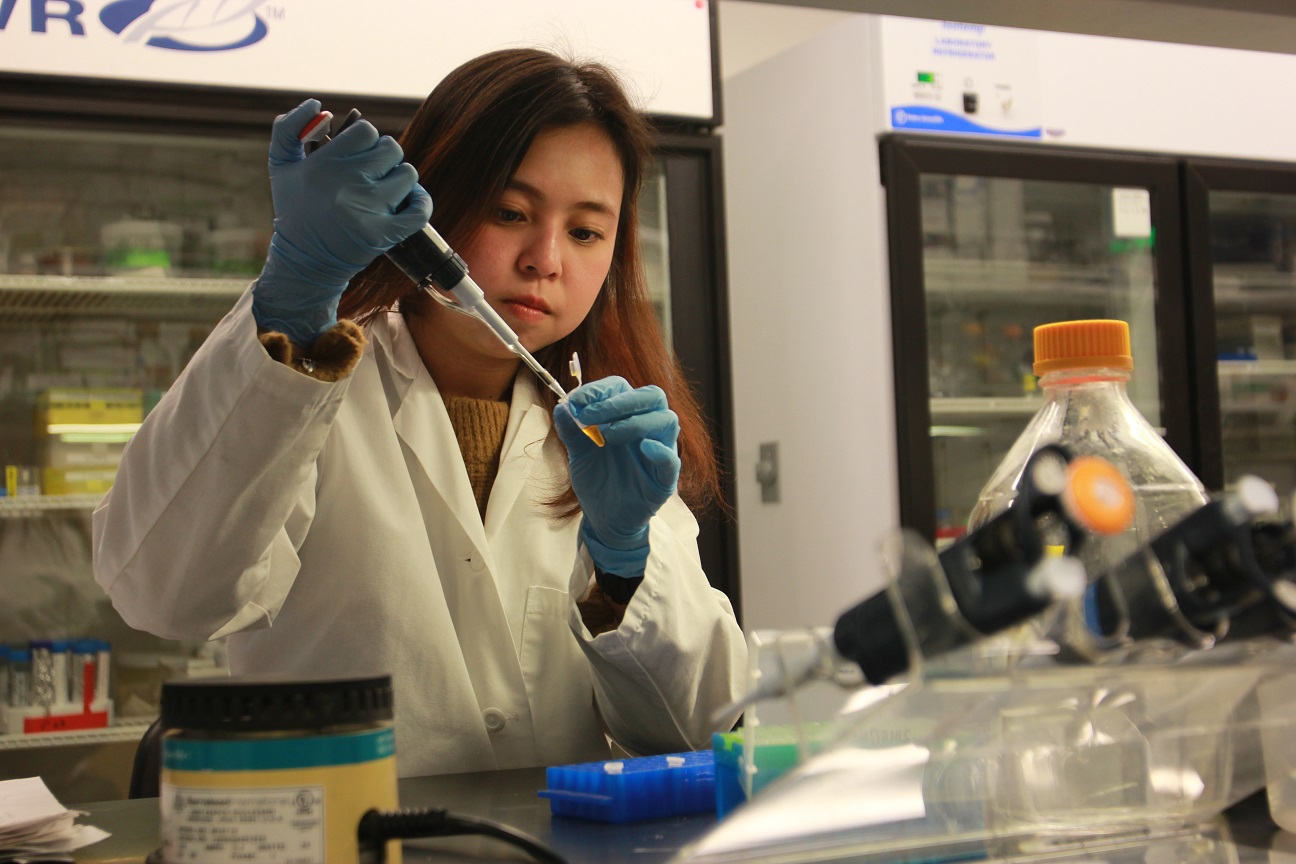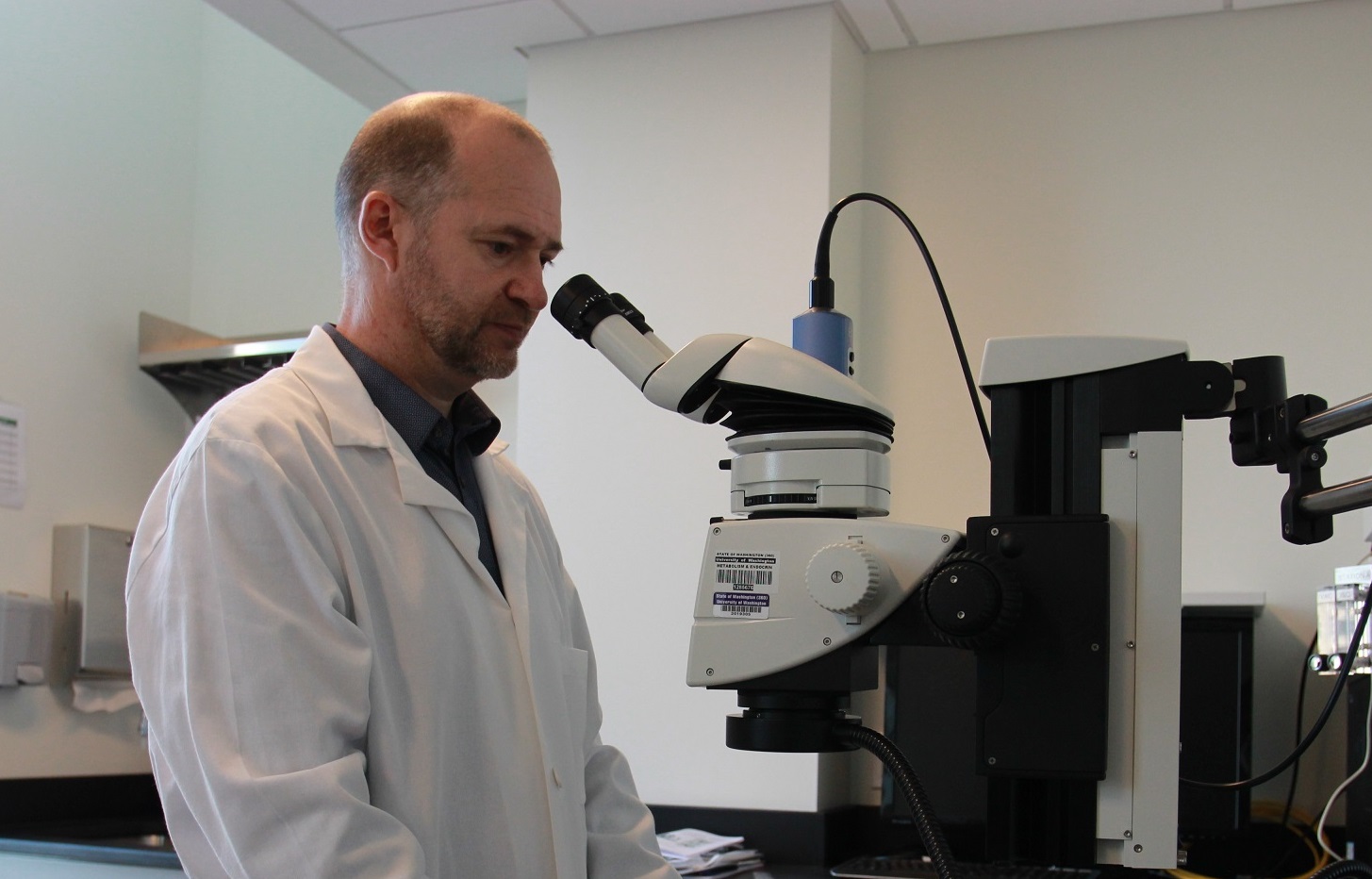Basic Research
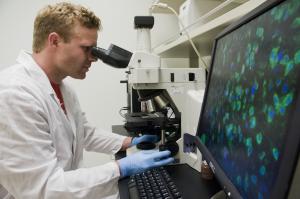 Basic research at the Diabetes Research Center focuses on the multiple aspects underlying the pathogenesis of obesity and diabetes.
Basic research at the Diabetes Research Center focuses on the multiple aspects underlying the pathogenesis of obesity and diabetes.
The regulation of body weight involves hormones, such as ghrelin, leptin and insulin that act upon neurocircuits in the hypothalamus and other brain areas.
Our studies have helped to develop and test the hypothesis that defects in the central nervous system (CNS) may unbalance the homeostasis of both energy balance and glucose metabolism and thus favor the progression of obesity, insulin resistance, and type 2 diabetes.
Clinical consequences of both type 1 and type 2 diabetes and their link to cardiovascular disease are also being investigated, with special emphasis on how these diseases affect the metabolism of cholesterol and lipoproteins, and how they disrupt cellular functions of macrophages and endothelial cells.
The center also aims to understand how the insulin-secreting pancreatic beta cell works and how its function is impaired in diabetes, and to identify autoimmune markers and mediators of type 1 diabetes.
Translational Research
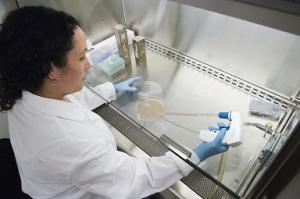
The cure of any disease depends on a fundamental understanding of its causes. Only by identifying the elements involved in the initiation and progression of a disease can a cure be found. An excellent example is cell-based therapy to treat diabetes.
The goal is the implantation of insulin-producing cells to permit insulin delivery for type 1 diabetes patients without the need for immunosuppression. The successful implementation of this therapeutic approach requires the application of a truly multidisciplinary approach involving stem cell biology, developmental, cellular, and molecular biology of the pancreatic beta-cell, immunology, and transplantation biology. We are building this comprehensive expertise at the Diabetes Institute.
Other areas of translational focus include studying the mechanisms whereby bariatric surgical procedures ameliorate diabetes, the development of diagnostic testing to predict future development of type 1 diabetes, and the use of proteomic analysis of lipoproteins to gauge the risk of a heart attack.
Centers and Institutes
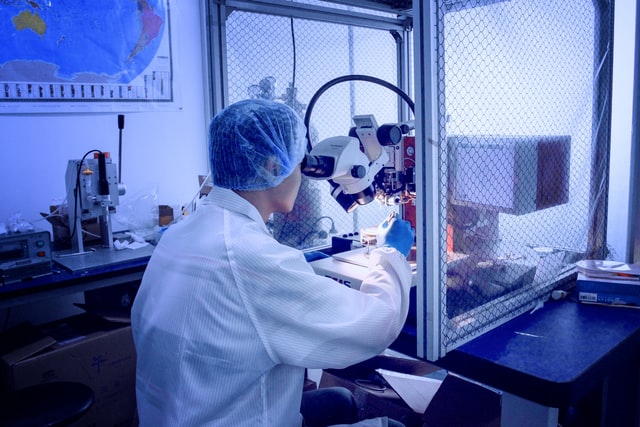
Center for Research in Reproduction and Contraception (CRRC)
The Center for Research in Reproduction and Contraception is dedicated to basic and clinical research focused primarily on the male reproductive system. Under the auspices of the center, investigators are working to understand the biology of this complex system and to apply their findings to problems of infertility and contraceptive development. Their research ranges from the biophysics of cell signaling to clinical trials of hormonal contraceptives.

UW Medicine Diabetes Institute (UWMDI)
The Diabetes Institute brings together a large number of investigators, most of whom are members of the division, studying various aspects of the basic science of diabetes and obesity. It is housed in laboratories at the South Lake Union campus, and also provides shared equipment and core services that facilitates the research of these investigators.

Diabetes Research Center (DRC)
The University of Washington (UW) Diabetes Research Center (DRC) is one of 16 DRCs sponsored by the National Institutes of Health, to promote basic, translational, and clinical research in diabetes and related metabolic disorders. The Director is Steven Kahn, M.B., Ch.B., Deputy Director is Karin Bornfeldt, Ph.D., and Associate Director is Jerry Palmer, M.D., all professors in the Department of Medicine.





